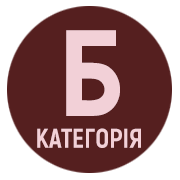INNOVATIVE APPROACHES TO THE PROFESSIONAL TRAINING OF FUTURE TEACHERS OF CONDUCTING AND PERFORMING SKILLS IN HIGHER EDUCATION
DOI:
https://doi.org/10.32782/2310-0583-2023-49-03Keywords:
innovative approaches, conducting and performing skills, problem-based learning, virtual reality, ethnopedagogical approachAbstract
The article is devoted to the study of innovative approaches to the professional training of future teachers of higher education institutions in the specialty “Conducting and Performing Skills”. The relevance of the study is due to the deterioration of the quality of music education in Ukraine, the need to update and modernize it by introducing innovative approaches to teaching. The purpose of the article is to develop recommendations for overcoming the problems that hinder the implementation of innovative approaches to the professional training of future teachers of conducting and performing skills. To achieve this goal, the study solved a number of tasks: the concept of “conducting and performing skills”, the basic abilities, skills and personal qualities of a teacher of conducting and performing skills that allow performing professional and pedagogical tasks were defined; innovative approaches to the training of teachers in this discipline were considered; problems that complicate the implementation of such approaches to the professional training of future teachers of conducting and performing skills in higher education institutions of Ukraine were identified; recommendations were proposed. The study used general scientific methods of cognition: induction and deduction, analysis and synthesis, association and analogy. The study found that in the training of teachers of conducting and performing skills, mainly traditional approaches are used, which are outdated and ineffective. In this regard, there is a need to apply innovative approaches: problembased learning, learning using virtual and augmented reality, collaborative learning, online learning, portfolio learning, etc. The implementation of such approaches is slowed down by a number of problems, including the inability of music education institutions to adapt to modern teaching processes; conservatism of curricula and teachers; inadequate material support to meet modern requirements; insufficient attention to the preservation and study of authentic folklore; inadequate staff and lack of an internship system for teachers. The solution to these problems requires the following measures: providing educational institutions with the necessary technical equipment; updating curricula; preserving authentic folklore, internships for teachers; expanding the repertoire of teachers. The practical significance of the study lies in the possibility of applying the results obtained by higher education institutions for the training of future teachers, including teachers of conducting and performing skills.
References
Шумська Л. Методологічні підходи до формування професійної майстерності хорових диригентів у процесі магістерської підготовки. Психолого-педагогічні науки. 2018. № 3. С. 66–67. URL: http://lib.ndu.edu.ua/dspace/bitstream/123456789/951/1/13.pdf.
Канерштейн М. Питання диригентської майстерності. Київ : Муз. Україна, 1980. 184 с.
Ковальова-Гончарюк Л. Інструментально-виконавська майстерність учителя музичного мистецтва як характеристика його професійної майстерності. Новий вимір науки та освіти. Педагогіка і психологія. 2021. № IX (98). Вип. 247. С. 22–25.
Довідник ВНЗ. Osvita.ua. 2023. URL: https://osvita.ua/vnz/guide/search-17-0-0-123-0.html.
Перегуда І., Мирончук Н. Застосування проблемного навчання у вищому навчальному закладі. Модернізація вищої освіти в Україні та за кордоном : збірник наукових праць. Житомир : Вид-во ЖДУ ім. І. Франка, 2014. С. 127–129.
Кожушко С. Стратегії колаборативного навчання у вищому навчальному закладі. Молодь і ринок. 2014. № 5. С. 65–71.
Мартинюк К. Формування диригентсько-хорових навичок майбутнього вчителя музичного мистецтва. Молодь і ринок. 2022. № 6. С. 11–15.







